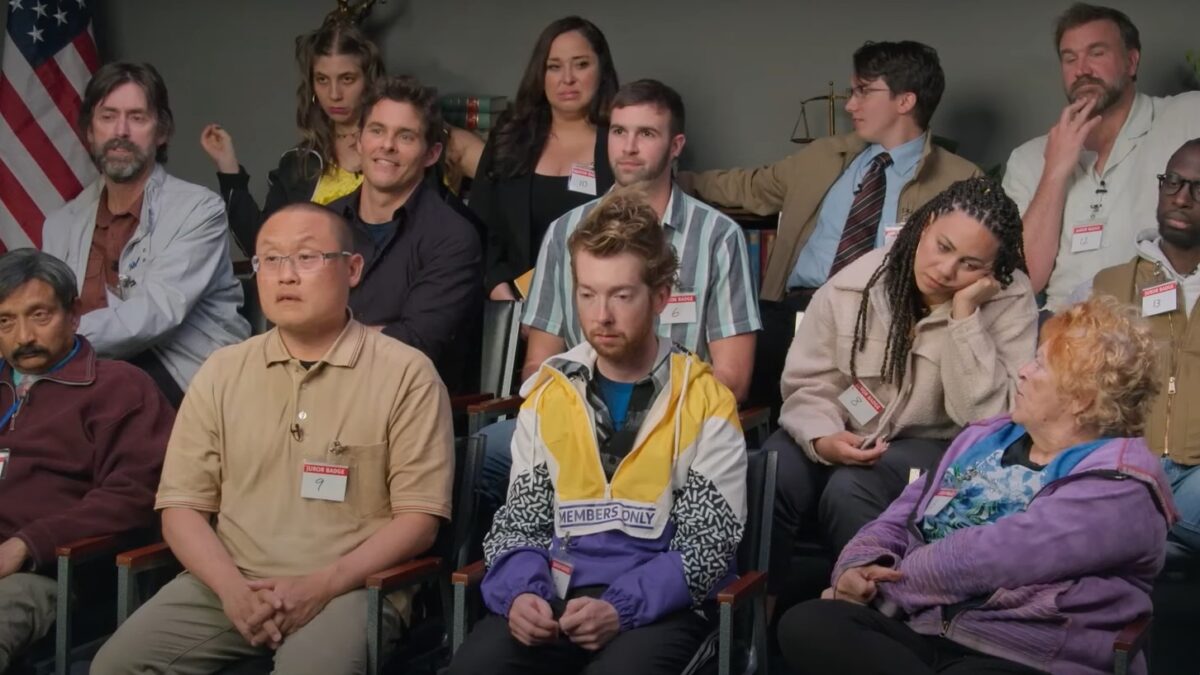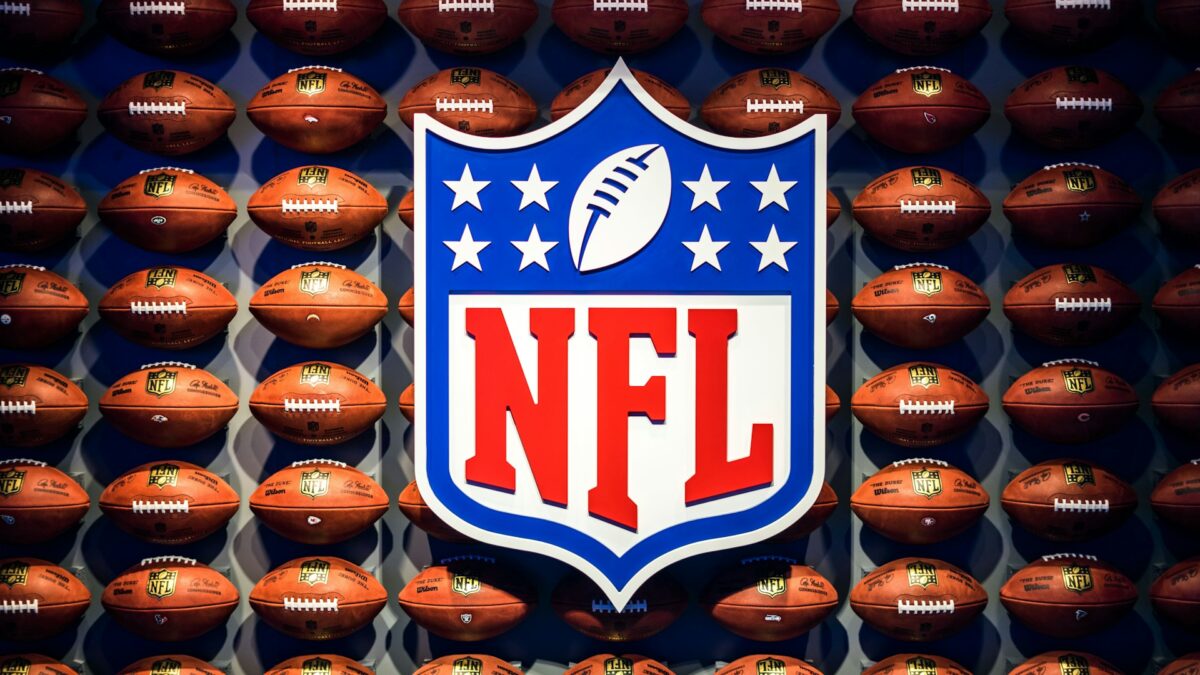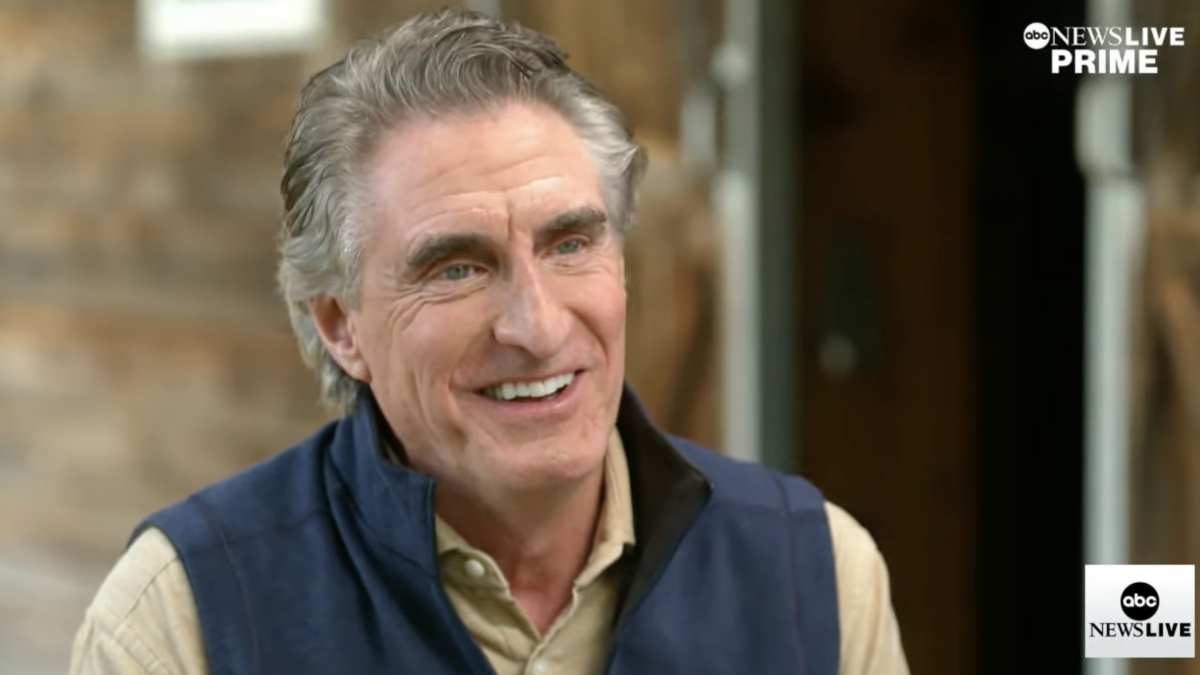In a time of endless sequels, reboots, and spinoffs, it’s rare to find something on television that is doing something new, but occasionally it happens. Such is the case with the new Amazon Prime series “Jury Duty,” which combines reality television, improv comedy, and social commentary.
The show follows a real person who thinks he’s participating in a documentary on jury duty, but he’s actually participating in a fake trial while surrounded by actors who are pretending to be jurors and court officials. It’s a little like “The Truman Show,” except it takes place for two weeks inside the dingy rooms of an L.A. courthouse and nearby hotel.
Although “Jury Duty” mainly works as a comedy, there are also moments of thoughtfulness and depth. This is made possible by the non-actor protagonist Ronald Gladden, a friendly average Joe. Gladden works with his fellow jury members to reach a fair verdict for a deadbeat employee. The employer has accused the employee of gross incompetence that cost millions of dollars in damages. Despite regularly facing the most ridiculous and awkward situations the show’s writers could think up, Gladden is always trusting, kind, and patient.
It is clear that both the show’s writers and the actors hope to rattle Gladden and provoke a reaction, but he successfully maintains his calm disposition. Whatever white male privilege he was supposed to exhibit simply doesn’t appear.
The same can’t be said for his foil James Marsden, who plays an exaggerated version of himself — a narcissistic B-list actor (best known for playing Cyclops in the X-Men movies) who’s auditioning for an upcoming movie while serving as an alternate juror. Time and again, Gladden defers to Marsden and hardly seems fazed by the actor’s obnoxious vanity.
In terms of its commentary on the world, it is significant that Marsden is acting while Gladden is not. Their relationship reveals the chasm between the behavior of men in real life and Hollywood’s fictional men. In truth, there are far more guys like Gladden than there are of Marsden — though Marsden deserves credit for having the humility to make fun of himself.
The other actors keep the show interesting while maintaining a sense of realism. For several hours at a time, they are forced to stay in character and improvise. Although they receive directions between their interactions with Gladden, they have to develop a full-blooded character with a background story as events happen in real-time. While all of them, including Marsden, start as a stereotype (i.e., the nerd, the naive immigrant, the straight-talking trucker, the busybody Karen, the conspiracy theorist, the privileged white woman), all of them gradually become believable human beings by the end of the trial.
For this reason, the interactions they have with Gladden feel genuine, making many scenes surprisingly poignant. When the middle-aged schoolteacher Ross, played by Ross Kimball, struggles with personal problems, Gladden immediately sympathizes with him and validates his feelings. When Ken, a bemused Korean immigrant with a gambling problem played by Ron Song, loses in a made-up board game with Gladden, he insists on paying his gambling debt to Gladden, who repeatedly refuses. When it comes time to decide on the liability of the deadbeat man-child Trevor, played by Ben Seaward, Gladden rises to the occasion and carefully reasons through the many variables of the fake case.
Not only do these scenes demonstrate that Gladden is a stand-up guy, but they show a kind of civility in American life that few critics seem to notice. Writers like David Brooks will publish long manifestos describing “How America Got Mean,” but this is not true of most Americans. Even with eccentric misfits flouting social conventions at every turn, most Americans’ first instinct is to find common ground and work together.
That said, it would be a stretch to claim Gladden is some kind of ideal man fit for sainthood. Sure, he may be nice and trusting. At 30 years old, however, it would be better to find him married with kids and more involved in his community, not playing Mario Kart each night while being sequestered for jury duty. He even hints at this in the last episode, as he reflects that this experience has made him want to help others more and be less selfish.
Outside the dramatic comedy of the jury members, the show is fairly positive regarding its take on the judicial system. Rules are followed, officials act professionally, and rights are observed. At least for people who aren’t reviled former presidents, the legal process is mostly fair, and participants are doing their best. Far from confirming the audience’s cynicism about today’s courts, the show offers reasons to hope justice will be served.
Overall, “Jury Duty” is great entertainment and a fascinating study of human nature. Although it would be difficult to keep up the illusion and novelty with future seasons, there’s no reason the show’s creators shouldn’t try. Sometimes, particularly with this first season, combining fact with fiction can lead to the best of both worlds.









